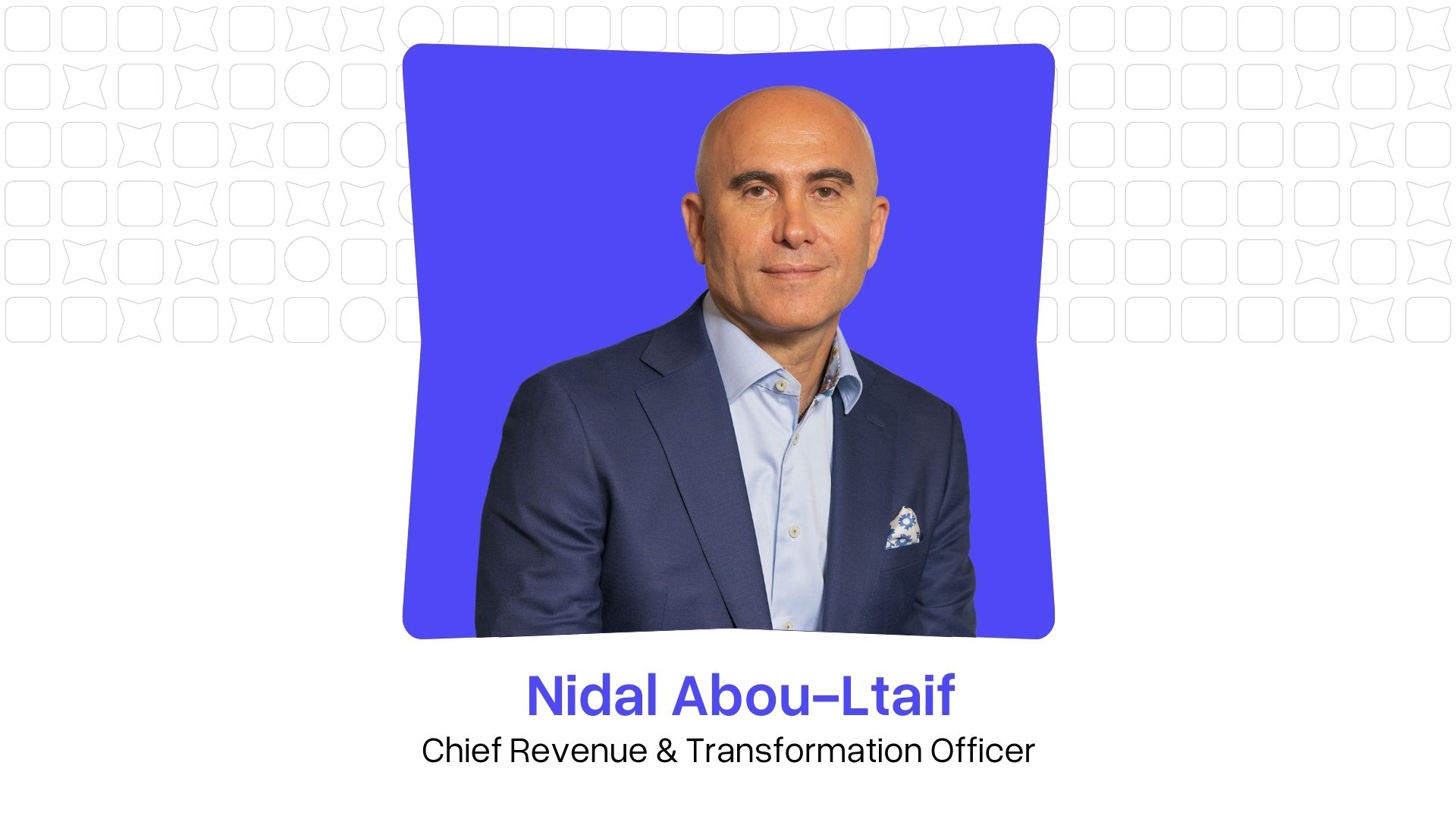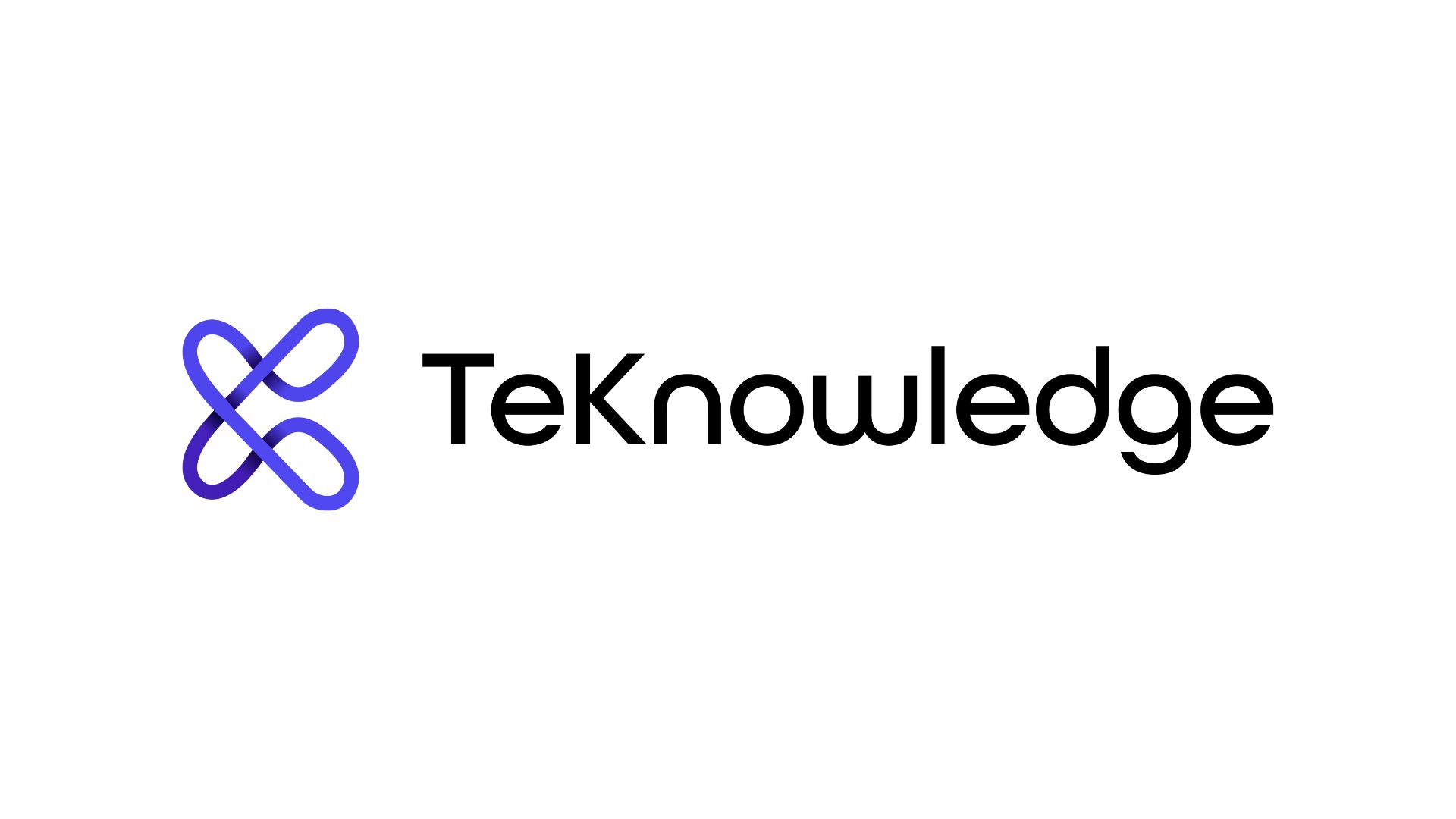Stay Ahead with Expert-Led Insights
Navigating Complexity. Driving Progress. Creating Lasting Impact.
Welcome to the TeKnowledge Insights hub! Here, you’ll find a blend of strategic perspectives, real-world case studies, and expert analysis designed to empower organizations to navigate challenges and seize new opportunities.
Explore the insights that matter most. Stay informed, gain new perspectives, and discover how businesses worldwide are unlocking new opportunities with TeKnowledge.
Stay Ahead with Expert-Led Insights
Navigating Complexity. Driving Progress. Creating Lasting Impact.
Welcome to the TeKnowledge Insights hub! Here, you’ll find a blend of strategic perspectives, real-world case studies, and expert analysis designed to empower organizations to navigate challenges and seize new opportunities.
Explore the insights that matter most. Stay informed, gain new perspectives, and discover how businesses worldwide are unlocking new opportunities with TeKnowledge.
All Categories
The latest developments, strategic partnerships and milestones.
- Events & Webinars
By: Jeannie Bonilla, LATAM Business Lead at TeKnowledge
28th May 2025, San Salvador, El Salvador
This week, I had the opportunity to speak at the first AI Mastery Series Workshop taking place in Central America, El Salvador was the first location where TeKnowledge hosted the workshop. I’ve delivered many sessions over the years, but this one stood out. We didn’t just talk about how AI works, we explored what it means to use it responsibly.
In a room filled with senior executives from both the private and public sectors—people facing AI-related challenges daily—we tackled one of the most important and often overlooked questions in tech: How do we ensure AI serves people fairly, safely, and transparently?
The Questions That Matter
AI is moving fast. In El Salvador and across Latin America, it’s being used in everything from public services and healthcare to financial systems. This growth brings huge potential—but also serious responsibility. That’s why one of the questions we circled around for most of the session was:
If AI is making decisions that affect people’s lives, who takes responsibility when something goes wrong?
And equally important: What frameworks or principles should guide us when designing and using these systems?
To answer that, we focused on four key areas of ethical AI that reflect the same values we expect in human decision-making. The difference now is that we have to embed them into systems, processes, and data.
- Fairness
Human comparison: Avoiding discrimination in hiring or services.
When a person hires someone or makes a service decision, they (ideally) focus on merit—not race, gender, or background. But people have unconscious biases, and when AI is trained on data reflecting those biases, it can amplify them at scale.
If a company has mostly hired men in the past, an AI trained on that history might begin to prioritize male candidates, without being explicitly told to.
Just like we ask people to challenge their assumptions, we must audit and test AI systems for bias. Fairness isn’t automatic; it must be designed and maintained.
- Transparency
Human comparison: Being able to explain a decision.
If a loan application is denied by a human, you can usually ask why and get an explanation. But with AI, decisions can come from a black box, using complex algorithms that no one can easily explain.
An AI might deny a person access to a medical procedure or financial product, and neither the user nor the provider can clearly explain the reason.
People deserve to understand AI decisions. Transparency means making models and processes interpretable—not just for developers, but for those affected as well.
- Privacy
Human comparison: Respecting confidentiality.
We expect doctors or public officials to protect our personal information, but AI systems often rely on large-scale data collection, and privacy can become an afterthought.
For example, an agentic AI might collect voice recordings beyond what’s needed, or personal data may be used to train models without explicit consent.
Privacy must be intentional. Ethical AI requires data minimization, informed consent, and strong safeguards, especially in regions where laws are still catching up.
- Accountability
Human comparison: Owning the outcome of a decision.
When a human makes a poor decision, they can be held accountable. But who is to blame when AI makes a mistake? Is it the developer? The manager? The company?
A predictive system might wrongly flag someone as high-risk for a loan or a crime, and blaming “the system” isn’t good enough.
Clear ownership across every stage of the AI lifecycle must be defined. Someone—a human—must always be answerable. Responsibility doesn’t disappear with automation; it just shifts.
Ultimately Human
El Salvador has a unique opportunity right now. As the country builds out its digital capabilities, it can choose not only to adopt the latest tools, but also to lead with integrity and care. The leaders in the room understood this. They brought real curiosity to the table, asking how to protect people’s rights, earn trust, and create solutions that are safe and inclusive from the very beginning. They valued progress that is shared, trusted, and sustainable.
If you’re working with AI—whether you build it, manage it, or make decisions about where it’s used—ethics is your responsibility too. We can’t afford to leave it to chance or to someone else.
The systems we create today will shape people’s lives tomorrow.
About the AI Mastery Series
The AI Mastery Series is a month-long initiative by TeKnowledge to bring meaningful conversations about AI to key leaders across Latin America. It began in El Salvador, and will continue through Costa Rica and Mexico, creating space for reflection, learning, and leadership around responsible innovation.
Follow the journey via #AIMasterySeries, stay up to date by following TeKnowledge, and reach out if you’d like to take part in a future session.
- Thought Leadership
There is a moment, after the headlines fade and the handshakes are done, when the real work of leadership begins. It’s quiet, less glamorous, no cameras, only decisions. That’s the moment we are in now. Our future is already taking form, driven by artificial intelligence, digital infrastructure, cybersecurity ecosystems, and systems of intelligence capable of learning, adapting, and acting. What matters now is how we choose to lead in that future. And more precisely: with what Intent.
During Donald Trump’s recent visit to the GCC this May 2025, the region once again stepped onto the global stage, not for spectacle, but for strategic signal. Across the UAE, Saudi Arabia, and Qatar, leaders emphasized long-term investment in AI, cybersecurity, and digital systems designed not just for speed, but for sovereignty, inclusion, and control.
In the UAE, leadership highlighted AI-powered ecosystems that anticipate needs and deliver outcomes with consistency and scale. Saudi Arabia unveiled its “Human” initiative, a bold vision to put AI at the heart of education, healthcare, and workforce transformation—showcasing how autonomy, when governed by purpose, can elevate entire populations. Qatar focused on human-centered design, ensuring AI contributes not just to growth, but to fairness, sustainability, and digital dignity.
This is leadership grounded in Intent: political vision executed with technical precision. These nations are architecting systems that prioritize predictability over volatility, reasoning over reaction, and control over chaos. Their message is clear: transformation must be designed, not drifted into.
Now business must do the same. To lead in the AI-first era, businesses can no longer rely on experimentation alone. They must shift from opportunistic automation to strategic intelligence. This demands more than investment in tools but more importantly, investment in people.
Building systems with clear reasoning paths, architecting AI that not only makes decisions but explains them, and designing platforms that scale autonomy without compromising accountability, are no longer optional. But none of it is sustainable without teams that are equipped, empowered, and trusted to build, adapt, and govern these systems.
Leaders who will shape this era are those who understand that technical capability is a human asset first. Success depends on developing the internal muscle, cultivating teams that understand not just how AI works, but why it matters. This means:
· Embedding continuous knowledge transfer into every implementation,
· Designing learning pathways that upskill employees at every level,
· Fostering cultures of digital fluency and ethical accountability, and
· Ensuring that innovation is not outsourced, but internalized and scaled from within.
We’ve already seen what this looks like in practice. The rise of generative AI was a moment of alignment: governments establishing ethical guardrails, capital funding bold platforms, and businesses rapidly embedding AI into products and services that are governed, explainable, and responsible.
But we’re also seeing the cost of under-designed systems. A leading retail brand’s recent cybersecurity breach, with an estimated £38 million in projected impact, offers a hard lesson: even trusted brands must invest continually in the resilience and preparedness of their digital systems and in the skills of the people who build and maintain them. Trust is not a marketing asset. It is the product of intentional design, of architectures built with transparency, security, and foresight, delivered by teams equipped to execute.
This is the call to action. Not to fear AI, but to shape it. Not to adopt technology, but to govern and grow it from within. Companies that succeed will embed autonomy where it empowers, control where it protects, and ethics where it guides; they will embed knowledge where it sustains, and skills where they multiply.
The triangle is nearly complete. Governments have acted with vision, conviction, and sovereign strategy. Capital is flowing with purpose, accelerating what’s possible. Now, business stands at the point of decision and the final force needed to shape this era with permanence.
This is a moment that calls for courage: to shape progress that lasts. The systems we are building today, across AI, cybersecurity, and human experience will not only define how we work and live but also reflect what we stand for. They will carry our values forward and show the world what we believe progress should look like.
To lead with intent is to earn trust before it’s questioned, to embed integrity into every layer of the system, and to bring clarity where there is complexity. It is to move with purpose, with humanity, and with foresight. This is the role business must now fulfil; the standard the age of intelligence demands, and the kind of leadership the future will remember.
- Thought Leadership
The promise of artificial intelligence (AI) in customer care is compelling: streamlined operations, personalized customer experiences, proactive issue resolution, and significant improvements in satisfaction and retention. However, turning this promise into reality can be challenging. Many enterprises discover that adopting AI at scale in customer care involves navigating technical, operational, and cultural hurdles that can slow or even derail transformation efforts.
With over two decades leading global technology support teams, I’ve seen firsthand both the promise and the pitfalls of AI adoption. At TeKnowledge, our collaboration with Genesys enables organizations to overcome these challenges, turning potential barriers into strategic advantages. Below, I share common pitfalls and best practices enterprises should consider as they scale AI effectively in customer service environments.
Pitfall #1: Underestimating the Complexity of Integration
Common Barrier:
AI isn’t a plug-and-play solution. Enterprises often underestimate the complexity involved in integrating AI with legacy systems, multiple data sources, and existing customer service platforms. Poorly executed integration can result in fragmented customer experiences, lower efficiency, and frustrated agents.
Best Practice:
Successful integration starts with careful planning and leveraging expert managed services. Consider partnering with a provider experienced in complex integrations—like TeKnowledge—that can facilitate a structured adoption process, ensuring seamless connections between AI-driven solutions, CRM systems, contact centers, and other business-critical platforms. Properly integrated, AI becomes a force multiplier, delivering unified, consistent customer experiences across all channels.
Pitfall #2: Insufficient Quality of Data
Common Barrier:
AI thrives on data. Yet many enterprises struggle with siloed, fragmented, or poor-quality data. According to recent surveys, 54% of companies identify fragmented data as the biggest barrier to successful AI implementation. AI trained on incomplete or inconsistent data can deliver inaccurate predictions and ineffective customer interactions.
Best Practice:
Begin by ensuring data cleanliness and consistency. Investing in data governance and unification strategies—breaking down silos and creating a single, comprehensive view of the customer—is essential. Organizations should employ robust data quality processes before deploying AI. At TeKnowledge, we emphasize the importance of data alignment early in the implementation process, setting the stage for AI to deliver meaningful insights and accurate predictions consistently.
Pitfall #3: Overlooking the Human Element
Common Barrier:
AI implementation is not purely technical—it significantly impacts your workforce. Resistance to AI often comes from employees who fear automation may replace their roles. Additionally, poorly executed AI deployments can inadvertently increase workloads if not carefully integrated into workflows.
Best Practice:
The most effective AI deployments complement and empower human agents rather than replace them. Enterprises should prioritize robust change management programs, clearly communicating the role of AI as a support tool, not a replacement. Involving support teams early in the planning process, offering comprehensive training programs, and demonstrating how AI will improve their workflows can reduce resistance and increase adoption. When employees see AI as an ally, adoption accelerates, and employee satisfaction improves—leading to better customer experiences.
Pitfall #4: Difficulty Defining Clear ROI
Common Barrier:
Many organizations struggle to articulate clear, measurable outcomes from AI investments in customer care. Without clearly defined ROI, enterprises can hesitate, stall, or abandon AI projects prematurely.
Best Practice:
Clearly define metrics of success from the outset. Organizations should identify specific KPIs—such as customer satisfaction scores (CSAT), net promoter scores (NPS), resolution times, and operational efficiency—and baseline these metrics before AI implementation. Regular measurement and communication of these outcomes build confidence in AI initiatives. TeKnowledge consistently emphasizes measurable impact and continuous improvement through structured adoption and managed services, ensuring tangible results and clear ROI from AI investments.
Pitfall #5: Ignoring Security and Compliance Risks
Common Barrier:
Implementing AI solutions—especially in cloud environments—raises valid concerns around data security, privacy, and compliance (GDPR, HIPAA, PCI, etc.). Many enterprises underestimate the complexity and rigor required to maintain compliance, leading to delays or incomplete implementations.
Best Practice:
From the earliest planning stages, businesses must integrate security and compliance requirements into AI deployments. Choosing an AI solution provider experienced in enterprise-grade cybersecurity—such as our team at TeKnowledge—can significantly mitigate these risks. Ensure thorough security audits, establish robust governance policies, and incorporate compliance checks throughout the AI lifecycle. Doing so ensures your AI-driven customer support aligns with industry standards and provides peace of mind for stakeholders.
Turning Barriers into Bridges with AI
At TeKnowledge, our partnership with Genesys uniquely positions us to help enterprises overcome these common barriers. Our combination of deep operational expertise, comprehensive managed services, and leading-edge AI technology creates an environment where AI adoption is secure, effective, and transformative.
The journey to scaling AI in customer care is complex—but with careful planning, thoughtful integration, proactive workforce engagement, clear metrics for success, and rigorous security practices, organizations can confidently navigate this journey.
By avoiding these pitfalls and adopting these best practices, your organization will not just successfully implement AI—you’ll unlock its full potential, delivering extraordinary customer experiences, empowered employees, measurable business impact, and sustained competitive advantage.
- Thought Leadership
Odysseus navigated uncertainty with cunning; Sun Tzu shaped his future with preparation; and Alexander the Great shaped his path with adaptability and bold thinking. These stories endure because they remind us that meaningful progress is built through vision, teamwork, and decisive action.
Today, we find ourselves in a moment of extraordinary possibility. Artificial intelligence is a meaningful shift in how we work, create, and grow. And the opportunity isn’t about replacing the human touch, but about expanding it. When we bring human purpose and intelligent technology together, we unlock something greater than either could achieve alone.
At TeKnowledge, we’ve embraced this moment with intention. Before offering AI solutions to clients, we explored them within our own teams. We adopted a “customer zero” mindset, learning firsthand how AI can elevate our people and operations. Through internal pilots and co-pilot licenses, we discovered where intelligent tools could support decision-making, streamline complexity, and free up space for more impactful, creative work.
Just as importantly, we prioritized trust and security at every step. Integrating AI meant ensuring that robust cybersecurity measures were in place to protect sensitive data, safeguard intellectual property, and uphold our commitments to privacy. Innovation is only as powerful as the trust it’s built on—and that trust begins with securing the foundation.
Just as important was the diverse team that led this exploration: data scientists, technologists, business leaders, and visionaries working side by side. Every insight was a step forward, reinforcing a simple truth: AI performs at its best when it empowers people. It complements, it enhances, and it amplifies the talent and collaboration already in place.
Throughout this journey, one thing is clear: success with AI comes from purpose-driven planning, thoughtful integration, and partnerships that value creativity as much as capability. Every solution is more powerful when it’s designed with the end user in mind, and every transformation is more effective when co-created with those who will shape it.
That’s why we work closely with clients and technology partners who see AI not just as an asset, but as a shared opportunity. Some tools shine brightest when paired with the right vision. Others reveal new potential when applied in fresh, imaginative ways. We focus on outcomes, collaboration, and continuous learning, because innovation doesn’t happen in a vacuum. It happens together.
Today, with more than 5,500 professionals at TeKnowledge, we’re equipped to navigate and lead in this evolving landscape. Our DevOps model gives us flexibility. Our people-first culture encourages curiosity. And our ecosystem of clients and partners continues to inspire progress every step of the way.
We don’t see AI as something to fear or control; we see it as a catalyst, one that when guided by purpose and grounded in human insight, can help us deliver smarter services, stronger connections, and better outcomes.
If you’re exploring how AI can unlock new possibilities in your business — or building the tools that will help others do so — we’d love to connect. Because like Prometheus bringing fire to humanity, we now hold something powerful. And it’s what we build with it that matters most. Used wisely, AI can be a spark for progress, lighting the way not just for what’s next, but for what’s better.
- News & Company Updates
L-R: Nidal Abou-Ltaif, Chief Revenue and Transformation Officer, Aileen Allkins, President and CEO¸ Yaniv Natan Founder YNV Group; Olugbolahan Olusanya, Territory Director, Africa; and Mahmood Lockhat, Chief Technology Officer.
With Nigeria as its largest global hub, TeKnowledge marks seven years of local impact and launches a unified service model to drive innovation, talent development, AI-powered transformation, and cybersecurity services across Africa and beyond
Lagos, Nigeria – May 8, 2025 – TeKnowledge today announced the official launch of its AI-First Expert Technology Services in Nigeria, along with a refreshed brand identity that reflects the company’s global evolution and deepened commitment to enabling enterprise and national transformation across Africa. The announcement was made during the TeKnowledge Nigeria CxO Summit 2025, a high-level event held at the Oriental Hotel in Lagos, which convened public and private sector leaders to celebrate seven years of operations in Nigeria and to share the company’s vision for the country’s next phase of technology-driven growth.
As the company’s largest global hub, TeKnowledge delivers services to over 90 countries from Nigeria and employs more than 2,000 local experts. It drives strong partnerships across both the public and private sectors, working closely with stakeholders to build sustainable digital ecosystems. In collaboration with Microsoft, TeKnowledge has trained thousands in AI skills—including more than 7,000 Nigerians and over 1,000 women through targeted ICT programs. The company serves as a trusted technology services partner to more than 40 Nigerian organizations, delivering solutions across skilling, digital transformation, and managed services.
Cybersecurity remains central to TeKnowledge’s transformation model, with its Security Operations Center hosted in Nigeria. The company offers award-winning cybersecurity expertise, with a proven track record in proactive defense and scalable security solutions across Africa and beyond. Its AI-driven security systems detect risks, predict attacks, and respond in real time—enabling clients to focus on what matters most. This capability not only builds resilience but also directly strengthens customer experience and trust. In today’s digital landscape, customers expect secure, seamless interactions—and organizations that prioritize cybersecurity protect data, earn confidence, and foster lasting relationships.
“This is an exciting milestone—one that reflects how far TeKnowledge has come and the future we’re building together with our ecosystem,” said Olugbolahan Olusanya, Africa Territory Director, TeKnowledge. “Our new brand and AI-First Expert Technology Services model are grounded in what has always mattered most: people, trust, and progress.”
The event celebrated Nigeria’s legacy of transformation—from its industrial and creative sectors to its growing leadership in applied AI—and applauded both the Nigerian government and private sector for leading the continent in delivering tangible returns from AI.
“Nigeria has always been a nation of transformation,” said Nidal Abou-Ltaif, Chief Revenue and Transformation Officer at TeKnowledge. “From the ancient trade networks of Kano to the fintech revolution and Nollywood’s global rise, progress here has always been driven by purpose. Today, Nigerian business leaders aren’t just exploring AI—they’re acting on it with urgency, focus, and vision.”
Yet, as innovation scales, structural challenges persist. Fragmented systems, limited AI-specific talent, and evolving regulatory frameworks continue to slow widespread adoption. Nigeria’s National AI Strategy highlights the need for stronger cross-sector alignment to ensure that AI-driven progress is inclusive, sustainable, and strategic.
TeKnowledge’s AI-First approach focuses on helping clients move from ambition to action—scaling solutions that are ethical, locally relevant, and built to last. With over 6,000 experts across 19 global hubs, TeKnowledge blends global scale with local expertise. Its strong ecosystem of partners, including Microsoft and Genesys, enables its experts to deliver AI-first solutions for enterprise productivity and customer experience, leveraging cloud and modern workplace technologies. Seventy percent of its workforce is certified in these platforms, reflecting deep technical capability and ongoing investment in talent.
- News & Company Updates
A bold visual identity, global expansion, and a people-first strategy signal the next chapter in expert tech services.
Colorado Springs, USA & Nicosia, Cyprus – April 15, 2025 – TeKnowledge today announced a new brand identity and the launch of its AI-First Expert Technology Services, an integrated model designed to help enterprises accelerate transformation across AI, Customer Experience, and Cybersecurity.
At the heart of the evolved identity of TeKnowledge is a unified service model that brings together strategy, delivery, and continuous improvement—strategically rooted in AI and designed to deliver a continuum of innovation.
“This is an exciting milestone—one that reflects how far TeKnowledge has come and the future it is building together with our ecosystem,” said Aileen Allkins, President and CEO of TeKnowledge. “Our new brand and AI-First Expert Technology Services model are grounded in what’s always mattered most: people, trust, and progress.”
As enterprises scale AI initiatives, many face mounting complexity, vendor fragmentation, and siloed implementation. According to Gartner, 77% of CIOs say it’s difficult to deliver value from AI due to fragmented systems. IDC reports 70% cite vendor sprawl as a barrier to innovation, while Forrester finds only 21% have an AI stack capable of scaling across the business.
“Our new service model connects strategy, execution, and optimization in one seamless experience,” said Nidal Abu Ltaif, Chief Revenue and Transformation Officer. “It empowers clients to integrate AI with confidence and evolve continuously, delivering long-term value at every stage of transformation.”
Partnerships, Global Reach, and a Talent-Driven Mindset
TeKnowledge is expanding its global footprint and investing in talent to meet rising client needs. With over 6,000 experts across 19 global hubs, the company delivers expert-led transformation grounded in local relevance and technical excellence.
As a Microsoft Solutions Partner, TeKnowledge specializes in Microsoft Productivity, Business Applications, and Intelligent Cloud.; 70% of its workforce is certified in Microsoft cloud and AI technologies, the company consistently delivers impact. A newly announced global collaboration with Genesys further strengthens its ability to modernize and personalize client environments. These partnerships enhance the impact of the AI-First model—accelerating outcomes through seamless platform integration.
TeKnowledge’s growth is driven by a people-centric culture that prioritizes continuous learning and development. By investing significantly in its employees’ growth, the company cultivates expertise that consistently outpaces industry norms, resulting in a highly skilled, deeply engaged team that stays and grows with the organization.
“We build long-term, flexible relationships—with our clients, our partners, and our people,” said Abu Ltaif. “That’s how we create resilient, growth-ready organizations.” Ongoing global expansions have strengthened the company’s established presence, enhancing its ability to deliver locally relevant services with global reach. Ready to build what’s next? Explore careers at TeKnowledge
Skilling & Security at Scale
TeKnowledge partners with public institutions and enterprises to build sustainable digital capability through certified skilling in AI, cybersecurity, and automation.
Its award-winning cybersecurity practice is recognized for proactive defence and scalable security operations. Meanwhile, its AI-powered learning platform enables customized, enterprise-grade training experiences—driving national and organizational readiness.
These initiatives extend the company’s commitment to innovation at scale, helping nations and businesses build resilient ecosystems. In Qatar, the company is leading a national AI skilling initiative in partnership with Microsoft and the Ministry of Communications and Information Technology. In Costa Rica, it serves as the skilling partner of the Ministry of Labor and Social Security, certifying students and early-career professionals in emerging tech fields.
Dave Michels, Principal Analyst and Founder of TalkingPointz, commented: “TeKnowledge has flown under the radar for much of the past decade, quietly building credibility and technical depth. Its evolution from a managed services provider into a fully integrated technology partner reflects a long-term strategy rooted in people, capability, and client value. The company’s AI-First services framework, paired with a strong Microsoft ecosystem and unified delivery model, positions it to meet the growing demand for smart, scalable, and connected transformation.”
Insights from the transition are also shared in these CEO and CRO blogs
–END–
About TeKnowledge
Founded in 2010, TeKnowledge provides expert technology services for AI, Customer Experience and Cyber Security that empower businesses and governments through
technology. With deep expertise, strong customer and people centric focus, and strategic partnerships, TeKnowledge has grown organically into a trusted partner for enterprises and governments worldwide across 19+ global hubs, supported by a team of 6000+ experts. Through its comprehensive services approach—spanning Advisory & Professional Services, Skilling & Adoption and Managed Services—TeKnowledge ensures seamless technology adoption and continuous progress for its customers. Visit Teknowledge.com
- Blog & Industry Trends
Modern organizations face an unprecedented surge in cyber threats, with 2025 seeing a 38% year-over-year jump in global cyberattacks. As attackers adopt new tactics and exploit vulnerabilities across increasingly complex digital environments, regular penetration testing (simulated attacks by ethical hackers) has become essential for safeguarding critical assets.
In fact, the global penetration testing market is now valued at over $3 billion and growing at a double-digit pace, reflecting the recognition of pen testing as a cornerstone of effective cybersecurity strategy.
This article explores the main types of penetration testing (pen testing), why they matter, and how to choose the right approach for your company.
What Is Penetration Testing and Why Is It Important?
Penetration testing (pen testing) involves a controlled simulation of real-world cyberattacks by security professionals to detect vulnerabilities—before attackers do. By emulating genuine hacker tactics, pen testing exposes gaps that may go undetected by automated scanning tools or compliance audits.
Benefits of Regular Penetration Testing for Companies
- Reduces Risk of Breach: 82% of organizations perform penetration testing mainly for risk assessment and remediation, with many preventing multimillion-dollar breaches by uncovering critical flaws ahead of attackers.
- Regulatory Compliance: Over 70% of companies in regulated sectors (finance, healthcare) require pen testing for compliance, as frameworks like GDPR and PCI DSS increasingly demand continuous security validation.
- Cost Avoidance: The average cost of a data breach continues to climb and can exceed $4.5 million for a single incident, while regular pen testing provides a strong return by minimizing the likelihood and impact of such events.
- Stakeholder Assurance: Demonstrates to customers, regulators, and partners that security is proactively managed.
Different Types of Penetration Testing
Penetration testing encompasses several specialized approaches, each targeting different parts of the organization’s digital and physical environment.
-
Network Penetration Testing
Assesses internal and external networks for misconfigurations, weak passwords, firewall flaws, and other vulnerabilities that could allow lateral movement or unauthorized access. This type of pen testing is often the first layer of defense against widespread cyberattacks targeting IT infrastructure
-
Application Penetration Testing
Tests web, mobile, and cloud-based applications for issues such as SQL injection, authentication bypass, cross-site scripting (XSS), and insecure APIs. With 73% of successful breaches leveraging web application flaws, application penetration testing is more important than ever.
-
Engineering Penetration Testing
Simulates tactics like phishing and pretexting to gauge employee susceptibility to manipulation, addressing the reality that human error is a top cause of real-world breaches. This type of penetration test measures human-layer vulnerabilities.
-
Physical Penetration Testing
Attempts to circumvent physical controls like access badges, locks, and surveillance to test facility resilience against break-ins or data theft from insecure locations. Physical penetration testing helps validate the strength of on-site security.
How to Choose the Right Types of Penetration Testing for Your Company
Assessing Your Company’s Security Risks and Assets
Identify assets (networks, databases, endpoints, physical premises) most critical to your business. Evaluate exposure: Are applications internet-facing? Do employees frequently work remotely or use personal devices? In such cases, application or network penetration testing becomes especially critical.
Understanding Compliance and Regulatory Requirements
Determine if your industry is subject to standards like PCI DSS, HIPPA, or GDPR, which may mandate specific types and frequencies of pen testing.
Aligning Testing Methods with Business Objectives
Map pen testing investments to areas supporting digital transformation, cloud migration, and customer engagement. Organizations expanding cloud adoption, for example, should prioritize application and API pen testing over purely network-based assessments.
TeKnowledge’s Penetration Testing: Combining Expertise, Technology, and Strategy
TeKnowledge offers a comprehensive suite of penetration testing services tailored to your company’s needs:
- Custom Engagements: Each project is scoped based on the customer’s objective and maturity level.
- Advanced Techniques: The assessment combines automated scans with in-depth manual pen testing, using both commercial and open-source tools.
- Comprehensive Coverage: Covering internal corporate networks, Internet-facing systems, APIs, web applications, mobile applications (iOS and Android), and cloud-based components with specialized penetration testing methodologies.
- Actionable Insights: Comprehensive technical pen test report detailing each vulnerability, its severity level, evidence, and technical context, along with strategic advice.
- Ongoing Partnership: Assistance does not stop at reporting—TeKnowledge supports remediation verification and continuous improvement through regular pen testing engagements.
Learn more about how TeKnowledge secures organizations with expert penetration testing services at TeKnowledge Cybersecurity Solutions.
Citations:
Zerothreat, “Pentesting Statistics 2025: Key Insights and Emerging Trends”
DeepStrike, “60 Penetration Testing Statistics 2025: Trends & Takeaways”
ResearchNester, “Penetration Testing Market Size & Share | Growth Forecasts 2037”
BlueVoyant, “Penetration Testing: Complete Guide to Process, Types, and Tools”
Brightsec, “9 Penetration Testing Types – Bright Security”
Digit.fyi, “The State of Penetration Testing in 2025”
IBM Security, “Cost of a Data Breach Report 2024”
GetAstra, “Types of Penetration Testing: A Comprehensive Guide”
Purplesec, “What Are The Different Types Of Penetration Testing?”
Fortune Business Insights, “Penetration Testing Market Size, Share | Growth Report [2032]”
- Blog & Industry Trends
Artificial intelligence (AI) is no longer a futuristic concept—it’s already transforming how enterprises approach customer service. Yet, many organizations struggle to fully realize its potential in improving their support operations. Understanding what customer service automation means, how it evolves support teams, and what benefits it brings is key to making strategic decisions about AI adoption.
Customer Service Automation: What Is It Referring To?
Customer service automation involves using technology—especially AI—to streamline support tasks, engage with customers at scale, and gain actionable insights from interactions. From handling high volumes of simple requests to enabling proactive care, automation is reshaping how enterprises interact with their customers.
This transformation is not just about efficiency; it’s about enhancing customer experiences through responsive, always-available, and intelligent support systems.
Difference Between Basic and Intelligent Automation
Not all automation is created equal.
Basic automation includes scripted workflows and rule-based bots that answer FAQs or perform routine tasks. It’s useful, but limited in scope and effectiveness.
Intelligent automation, however, involves AI and machine learning capable of understanding context, learning over time, and adapting. Intelligent systems integrate with your customer data, support agents during live interactions, and provide predictive recommendations—offering a far more seamless and scalable solution.
The Evolution of Support Teams Through Automation
Beyond automating tasks, AI is playing a pivotal role in how support teams are structured, how they work, and how they deliver value.
From Reactive to Proactive Support
Traditional support models are reactive—resolving issues after customers report them. Intelligent automation enables a shift toward proactive service, where systems detect signals of potential problems and engage customers before they reach out.
Many organizations are already transforming customer experience with proactive AI-driven support, enabling faster resolutions, fewer tickets, and significantly improved customer satisfaction.
Redefining Roles and Responsibilities
A common misconception about automation is that it replaces human agents. In reality, it elevates them.
By offloading repetitive inquiries and processing tasks to AI, agents can focus on more complex and emotionally nuanced interactions. This shift enhances job satisfaction, reduces burnout, and allows agents to deliver greater value as knowledge experts and relationship builders.
Automation in Multichannel and Omnichannel Environments
Today’s customers interact with brands across multiple channels—email, chat, phone, social media. Successful automation strategies ensure consistent customer experiences across all of these environments.
However, when AI solutions are implemented in silos or added onto outdated infrastructure, the result is often a fragmented experience. Best-in-class implementation, guided by partners like TeKnowledge, ensures seamless orchestration across platforms—developing true omnichannel intelligence.
Key Benefits of Customer Service Automation for Teams
When executed thoughtfully, AI deliver measurable improvements to both customer experience automation and operational performance.
Faster Response and Resolution Times
AI-powered tools enhance response times by instantly routing tickets, providing self-service options, and assisting live agents in real time. Many enterprises have seen significant lifts in key metrics such as CSAT and NPS by implementing automation at scale.
Reduced Repetitive Tasks and Agent Burnout
Repetitive, low-value tasks are not only inefficient but also contribute to high agent turnover. By taking over these tasks, automation reduces workloads while increasing job satisfaction—ensuring support teams stay engaged and motivated.
Consistent Service Quality at Scale
It’s one thing to deliver great service—it’s another to sustain that quality across millions of interactions. Automation standardizes responses, enforces company policies, and scales effortlessly with demand, enabling consistent service delivery even during high-volume peaks.
Data-Driven Decision Making
AI thrives on clean, integrated data. When your automation solutions are powered by robust datasets, they unlock insights that help optimize workflows, personalize customer experiences, and inform strategic decisions company-wide.
TeKnowledge: Your Partner for Customer Service Automation
Implementing AI in enterprise support isn’t just a technology decision—it’s a strategic shift. Many businesses face barriers such as poor integration, fragmented data, internal resistance, and uncertainty over ROI.
That’s where TeKnowledge comes in.
As a trusted partner of Genesys and an expert in transforming enterprise customer service ecosystems, TeKnowledge helps organizations navigate complex AI deployment journeys. From discovery to implementation, their team provides hands-on guidance, tailored training, and experienced change management to ensure your systems run optimally—and your people embrace them.
By combining deep operational consulting with managed services, TeKnowledge ensures your customer service automation strategy delivers long-term success—not just short-term fixes.
Ready to scale your support operations with intelligent automation?
Reach out to TeKnowledge today to learn how your customer service can be transformed—proactively, intelligently, and sustainably.
- Blog & Industry Trends
In today’s hyper-connected economy, cybersecurity in financial services is becoming increasingly vital as the sector undergoes rapid digital transformation, unlocking new opportunities for growth but also exposing itself to more sophisticated and relentless cyber threats. The sensitive nature of financial data, compliance pressures, and the industry’s special appeal to cybercriminals make cybersecurity in financial services a critical cornerstone for banks, fintechs, insurers, and all financial institutions. Organizations in this sector must not only guard their data and assets but also secure customer trust as operations migrate to digital platforms and cloud-based solutions.
This article explores the main facets of cybersecurity in financial services, the unique risks facing the industry, and actionable measures to prevent, detect, and respond to attacks.
Why is Cybersecurity Critical in the Financial Sector?
The Growing Digitalization of Financial Services
The financial sector is experiencing explosive growth in digital banking, mobile payments, and cloud-based platforms, expanding customer access but also the “attack surface.” The global banking cybersecurity market was valued at $74.3 billion in 2022 and is forecast to reach $282 billion by 2032, underscoring the industry’s escalating investment to counter evolving cyber threats. Nearly one-fifth of major reported cyber incidents target the financial sector, resulting in $12 billion in direct firm losses globally. In Europe alone, from January 2023 to June 2024, 46% of reported cyber incidents struck credit institutions (banks).
This rapid shift—driven in part by the pandemic—has required integrating legacy and third-party technologies, each with potential vulnerabilities demanding new security strategies.
For further details, see The Challenges of Legacy Financial Systems.
Financial Institutions as High-Value Targets
Financial institutions are prime targets due to the volume of funds and sensitive data they manage. 64% of financial organizations reported at least one cyberattack in 2024. Meanwhile, 95% of attacks on the financial sector are financially motivated.
The average cost of a data breach in this sector is $5.85 million, substantially higher than most other sectors. In the United States alone, 566 breaches in 2022 led to over 254 million leaked records from finance and insurance organizations. Ransomware attacks increased from affecting 55% of firms in 2022 to 64% in 2023.
Cyberattacks are now considered a major risk to global financial stability. This drives not just operational cost, but also potential insolvency and market-wide disruption
Common Cyber Threats in the Financial Industry
Phishing, Malware, and Ransomware
Phishing remains the leading attack vector: It is the most common initial method for cybercriminals to gain access to financial systems, typically by stealing credentials or delivering malware through deceptive emails. Many major industry reports for 2025 confirm that phishing is a key threat, serving as the initial step in most attack chains.
Ransomware is now the most damaging and disruptive threat: Nearly two-thirds (65%) of financial institutions reported being hit by ransomware in the last year—an all-time high. Ransomware attacks are evolving, with attackers not just encrypting data but also stealing it (double extortion), causing operational disruption, regulatory fines, and reputational harm.
Stay updated on evolving threats with Top Cybersecurity Trends in Financial Services for 2024.
Insider Threats and Third-Party Vulnerabilities
Threats are not always external/insider behavior, whether malicious or accidental, presents significant risk to sensitive data. Ambiguous privilege controls or lack of employee training can lead to unintentional breaches. Additionally, risks introduced by third-party vendors, fintech integrations, and cloud service providers mean that the security posture of partners directly impacts the institution’s safety.
Key Measures to Strengthen Cybersecurity in Financial Services
Zero Trust Architecture and Multi-Factor Authentication
A Zero Trust model, assuming no user or system is implicitly trusted, is making headway. Institutions are broadly adopting network segmentation, least-privilege controls, and multi-factor authentication to block unauthorized access, whether from outside or within.
Data Encryption and Secure Adoption
Robust encryption protocols for data at rest and in transit safeguard information from interception and compromise. When adopting new technologies, financial organizations should perform rigorous risk assessments and ongoing vulnerability management to ensure secure integration.
Real-Time Threat Monitoring and AI-Based Detection
Given the volume and speed of attacks, AI-powered monitoring and machine learning for anomaly detection are now standard in top-performing Security Operations Centers (SOCs). These intelligent systems enable rapid identification and response to threats.
For insight into collective defense initiatives, see The Emergence of Sectoral SOCs.
Regulatory Compliance and Governance
The sector is heavily regulated: GDPR, PSD2, DORA, and other requirements demand structured governance, regular audits, and provable incident response capabilities. In a 2024 survey, 98% of consumers reported concern about cybercrime affecting financial organizations, and 57% of banking executives cited cybersecurity as their top priority.
Employee Training and Awareness Programs
Ongoing employee education and tailored awareness campaigns equip staff to identify phishing attempts and other social engineering tricks, acting as the first line of defense against cyber threats.
How TeKnowledge Helps Financial Institutions Stay Secure
TeKnowledge provides holistic cybersecurity solutions tailored to the needs of financial institutions. Our services include:
- Protection: Designing and implementing Zero Trust architecture, advanced encryption, and robust security frameworks.
- Detection: Leveraging AI-driven, real-time monitoring to identify and neutralize threats.
- Response: Rapid incident response, remediation planning, and forensic analysis to ensure resilience and regulatory compliance.
- Sectoral Collaboration: Promoting shared defense strategies, such as sectoral Security Operations Centers (SOCs), for coordinated response across institutions.
Explore our approach at TeKnowledge Cybersecurity Solutions
By partnering with TeKnowledge, financial organizations can confidently pursue digital transformation, ensuring their operations and customer data remain secure in today’s challenging threat environment.
Citations:
ENISA, “ENISA Threat Landscape 2023–2024: Financial Sector”
International Monetary Fund, “Cyber Risk Surveillance: A Case Study of the Financial Sector”
Sophos, “The State of Ransomware in Financial Services 2024”
IBM Security, “Cost of a Data Breach Report 2024”
Identity Theft Resource Center, “2022 Data Breach Report









